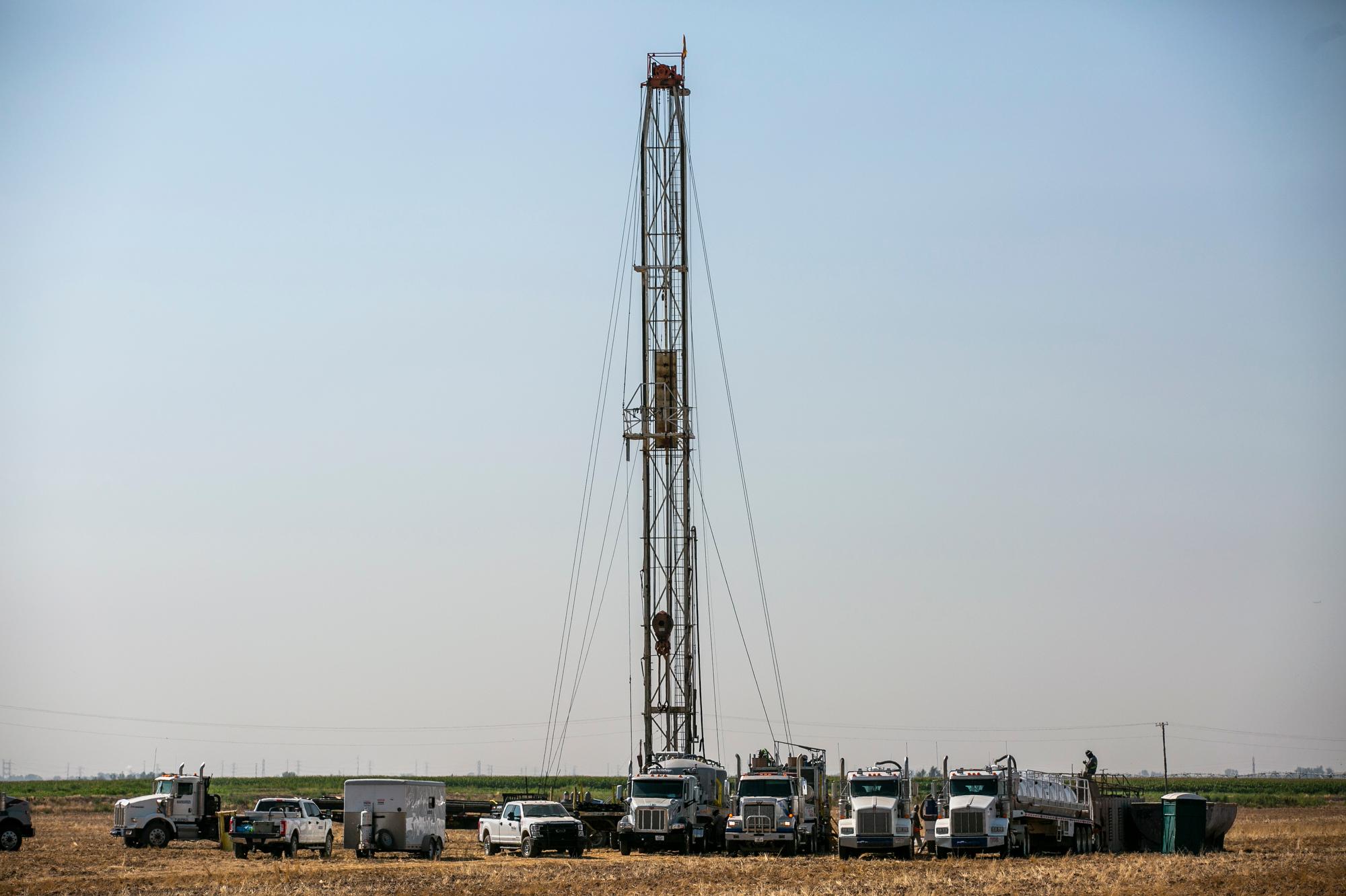
Updated 4:13 p.m.
Colorado’s Democratic Congressional delegation is asking the U.S. Environmental Protection Agency to “swiftly” adopt stricter rules on methane, a potent greenhouse gas and byproduct of oil and gas drilling, saying an aggressive approach could cut methane pollution in half by the year 2030.
“Human-caused methane emissions are responsible for at least 25 percent of the warming we are experiencing today, with recent studies finding that methane alone contributes around half a degree to global warming,” states the letter signed by Democratic Sens. Michael Bennet and John Hickenlooper, as well as Democratic Reps, Diana DeGette, Joe Neguse, Jason Crow and Ed Perlmutter.
“Climate change is happening, and it’s happening more and more quickly. We’ve had smoke sitting in the Denver area for two and a half months now,” Perlmutter said. “So we just think we’ve got to, as a nation, do all we can to reduce our pollution to try to slow this change that’s happening.”
The three Republicans in the state’s delegation did not sign the letter.
The Western Energy Alliance, which represents oil and gas companies in western states, called the letter factually inaccurate and redundant.
“Perhaps the delegation is just reacting to how slowly this administration has been moving forward on its regulatory agenda, but urging shortcuts is unwise,” said Kathleen Sgamma, the group’s president.
Sgamma said the Biden administration is already moving forward with many of the actions outlined in the letter and worried the “swift” action sought by the Democrats in their letter could shortcut the rulemaking process required in the Clean Air Act.
Some of the provisions the letter asks for are already in place in Colorado. The Democrats want the EPA to require companies to frequently check for leaks and monitor emissions to prevent pollution from equipment failures. They’re also asking to undo a carve-out for low-production wells.
“These wells represent a majority of the nation’s fleet, just a small percentage of oil and gas production, and about half of the methane emissions from the industry,” the letter states.
Colorado’s Democratic members are asking the EPA to limit the energy industry’s practice of burning off methane from natural gas, known as flaring, which releases carbon dioxide into the air.
And they’re requesting the EPA set standards for closing abandoned wells. Colorado has more than 250 “orphan” wells that need to be plugged — and more than twice that number of former oil and gas sites that need to be cleaned up and restored.
“We were pleased to learn of President Biden’s commitment to advance protective methane standards,” the letter reads. “As your agency moves to strengthen requirements for new oil and gas facilities and begins the process of addressing existing sources, we urge you to look to Colorado.”
In 2014, Colorado became the first state in the country to regulate methane when it adopted rules that cap emissions and require the largest operators in the state to check for and repair leaks — and outfit oil-field equipment with non-emitting components. The state finalized additional oil and gas regulations in 2020, including rules that ban the routine flaring or venting of natural gas.
The EPA in 2016 enacted rules requiring that oil and gas companies install equipment to detect and fix methane leaks, but the regulations were weakened by the Trump administration in 2020. Biden signed a bill earlier this summer, that was sponsored by Colorado’s Diana DeGette, to repeal those rollbacks.
While carbon dioxide is the greenhouse gas most responsible for disruptive climate change, scientists and policymakers are increasingly sounding alarms about a surge in methane emissions — more than half of which comes from human activities like burning fossil fuels, livestock production and landfills. Methane is a small fraction of the earth’s atmosphere, but it has 80 times more heat-trapping power than CO2 in the first 20 years after it’s released.
Aaron Weiss with the environmental nonprofit Center for Western Priorities said he hopes the EPA acts on the delegation’s request.
“When you have two senators from one state, when you have a good chunk of the state's congressional delegation, all saying to the EPA, ‘this is important to us,’ I think that that does get taken into account when it comes to final rulemaking.”
While there have been problems with the state’s tracking of methane emissions, Colorado’s rules have been touted by Hickenlooper and others as a national model and were groundbreaking, in part, because they brought together an unusual coalition of industry and environmental groups that agreed on measures to prevent pollution.
Dan Haley, President and CEO of the Colorado Oil and Gas Association, said energy companies have shown that reducing emissions while increasing oil and gas production is possible. He said Colorado’s rules allowed people with a lot of different perspectives to weigh in.
“They were also developed over several years, taking various steps in thoughtful ways that allowed stakeholders to assess their effectiveness and make sure that the rules would work,” he said.
But Haley warned that a federal requirement wouldn’t be the right approach. “Hard and heavy top-down mandates only serve to divide and frustrate people, and may not produce beneficial outcomes. Every state and every basin faces different challenges where one size doesn’t fit all.”
Environmental groups like the Center for Western Priorities, however, worry that actions to reduce methane emissions will stall if the Biden administration doesn’t lay out enforceable federal regulations.
“So I think as much as you see the oil industry saying, ‘oh, trust us, we will take care of this ourselves,’ that is not born out by the facts on the ground,” said CWP’s Weiss.
CPR’s coverage of Colorado’s congressional delegation focuses on accountability and on providing information constituents need to live their lives. Read more about our priorities here.








